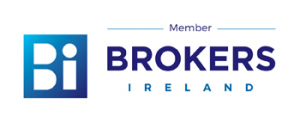In this month’s Construction Magazine, Susan looks towards 2022.
For almost two years, business leaders and governments alike have had to get comfortable with the words “I don’t know”. It is a characteristic of the times we are living in. However, even without the aid of a crystal ball, we know there are some topics that will be priority in 2022, both in the news and for household finances. In the coming year, I will cover each of these topics in this column, in terms of why they may matter to you and what you need to know or do. For now however, here are the headlines should you be contemplating the next 12 months:
Inflation
 Inflation has been a subject for consideration throughout 2021. Eurozone inflation is at 4.9% for November, reportedly the highest in 25 years.
Inflation has been a subject for consideration throughout 2021. Eurozone inflation is at 4.9% for November, reportedly the highest in 25 years.
This is a concern to Irish households for two main reasons. Firstly, inflation increases the cost of their goods and services and secondly, inflation erodes the purchasing power or value of your money.
It is also a likely concern for investors. It can effect investment returns by chipping away at real savings and investment returns. If the objective of your investment is to increase your long-term purchasing power, inflation can put this goal at risk because investment returns must first keep up with the rate of inflation in order to increase real purchasing power. For example, an investment that returns 2% before inflation in an environment of 3% inflation will actually produce a negative return (−1%), when adjusted for inflation. This might mean that investors may need to invest in higher risk portfolios to meet their objectives.
If all your investment does is keep pace with inflation, it is still better than losing value by sitting on deposit if you are not earning interest?
Is inflation here to stay?
According to a quote in the Irish Times (Dec 1st), it appears that this inflationary period is temporary: “The ECB has long argued that the inflation surge is temporary, caused by a range of one-off factors, and will subside over time so policy action now would be counterproductive as it would thwart economic growth just when inflation eases on its own”.
This will be a continuing topic in 2022 as we look at the impact of this inflation on the cost of goods and services and the erosion of purchasing power.
Banking
1.1m Ulster Bank clients in Ireland (myself included); will need to switch providers in 2022. It will be interesting to see how this switch plays out. In my own experience, I am currently trying to decide which bank to move to. In my search for a new provider, I have been unable to schedule appointments within a 4-week turnaround – although I can set something up online if I prefer. This could get messy if every Ulster Bank customer tries to make the switch at the same time.
But for now….watch this space.
Sustainable Finance
‘Sustainable finance’ refers to the process of taking account environmental, social and governance (ESG) considerations when making investment decisions.
- Environmental: These environmental considerations refer to climate change, carbon emissions, energy efficiency, water scarcity etc.
- Social: Social considerations can include issues of inequality, inclusiveness, human rights, labour relations, investment in human capital and communities. Data Protection and Privacy also falls into this category and are growing concerns.
- Governance: This has always ranked high on the list of considerations. This includes governance of public and private institutions, including management structures, employee relations and executive remuneration. Lobbying, whistle blower schemes and political contributions would also be included.
Sustainable Finance Disclosure Regulation
Consideration of the factors above when investing can lead to increased investment in longer-term and more sustainable activities. This will ultimately result in driving investor money towards companies that have a net positive outcome on the world.
The Sustainable Finance Disclosure Regulation (SFDR), introduced in 2019, came into effect in March 2021, as part of a new wave of European regulation aimed at building a sustainable economy. Further regulations come into effect from January 2022, with the aim of ensuring EU investors have the relevant information they need to make investment choices, which are in line with their sustainability goals. By providing this information, SFDR seeks to eliminate the practice of “greenwashing” financial products and financial advice.
If you have concerns about the current state of your investment or are concerned about your future, talk to your financial adviser today. There are no crystal balls, but ensuring you have a plan is a step in the right direction towards financial stability.
For further information, contact Susan O’Mara in Milestone Advisory via email (susan@milestoneadvisory.ie), or phone (01) 406 8020.
 Here to help you navigate your way to financial security.
Here to help you navigate your way to financial security.
The Milestone Advisory team are qualified financial services consultants. We specialise in helping professionals in the construction sector and related industries. Our team will work with you to review your finances, explaining your options in clear English.
No jargon – just the facts.
Milestone Advisory DAC t/a Milestone Advisory is regulated by the Central Bank of Ireland.
Warning: The value of your investment may go down as well as up.





